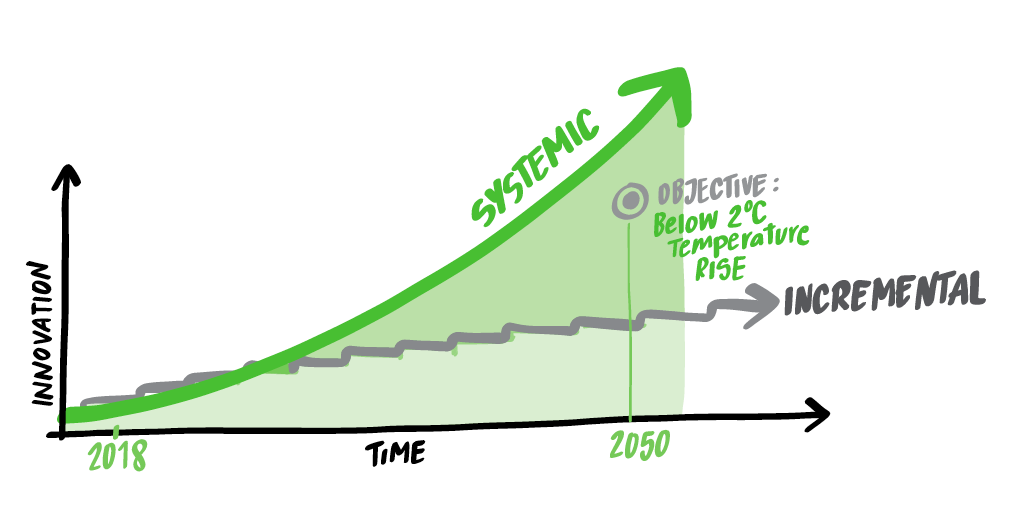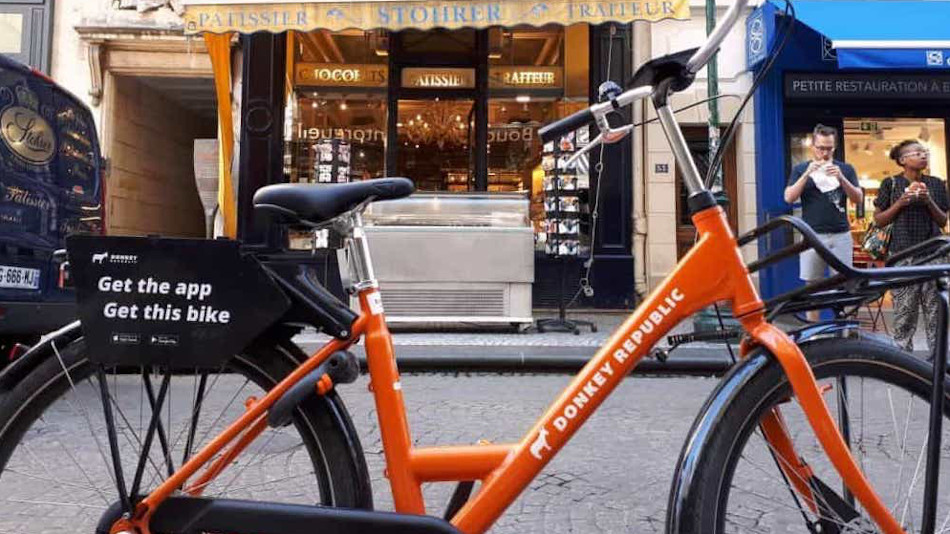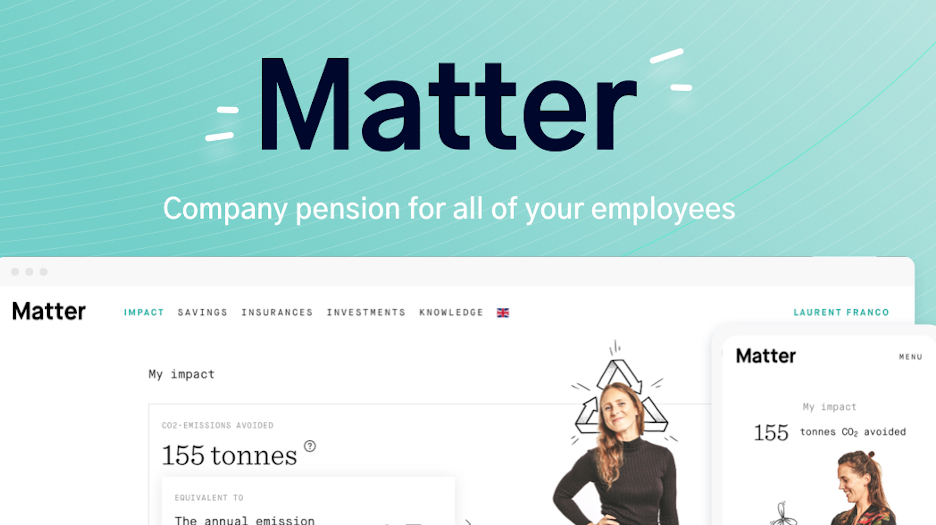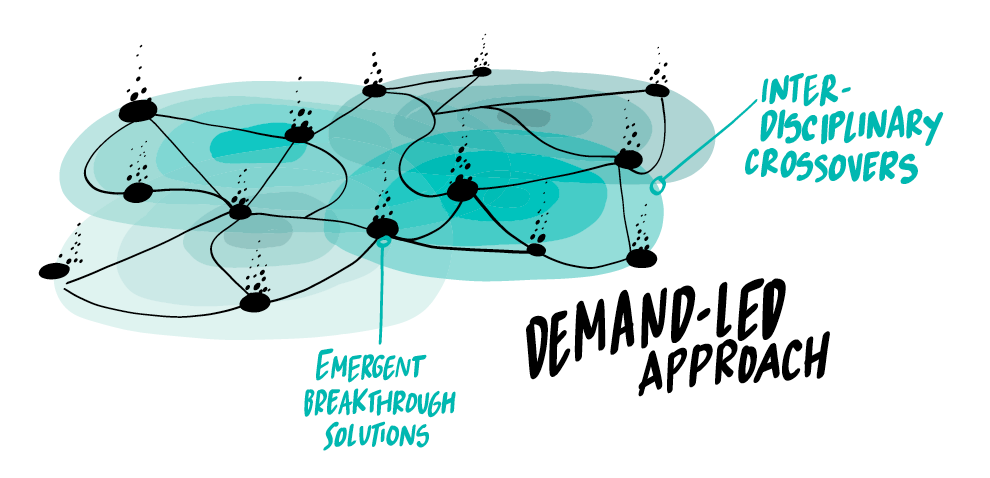How start-ups can accelerate the green transition
In The News
11 Jun 2020
The climate emergency presents a growing demand to deliver climate positive impact that matches the scale and urgency of this unprecedented global challenge. Scouting for innovative solutions around the world, impact start-ups have been at the forefront of the tech-for-good movement.
Nonetheless, it remains unclear what the role of start-ups in the transition towards a zero-carbon economy is and how support organisations can best play a role in accelerating the change needed. In this article we elaborate on these questions based on ten years of experience accelerating more than 2.000 climate impact start-ups across Europe. We draw on some of the cases in our backyard – the Nordic EIT Climate-KIC Accelerator portfolio consisting of around 150 impact start-ups. Finally, we conclude with some practical suggestions as a path forward.
Incremental changes won’t cut it
Last year EIT Climate-KIC released its ambitious strategy ’Transformation, in Time’ to address the biggest challenge of the 21st century, i.e. climate change. Buckle up if you are not yet familiar with the premise. Preventing catastrophic ecological collapse and achieving the well below 2°C Paris Agreement target requires a speed of decarbonisation at least six times faster than anything the global community has achieved so far.
Continuing to work through gradual, incremental changes won’t cut it. A fundamental transformation of economic, social and financial systems is needed that will trigger exponential change in decarbonisation rates and strengthen climate resilience. According to the IPCC special report on the impacts of global warming of 1.5 °C above pre-industrial levels we need “rapid, far-reaching and unprecedented changes in all aspects of society”.

Incremental vs. systemic change in the face of climate change
Source: EIT Climate-KIC, ’Transformation, in Time’, p. 8
Entrepreneurship as a way forward
Systemic innovation is prescribed as the way to prompt transformations at the pace demanded today. It entails the design of integrated and coordinated interventions in economic, political and social systems and along the whole value chain through a portfolio of deliberate and connected innovation experiments.
This type of innovation involves a mix of actors working together in ways that bridge multiple contexts. For its success it’s essential to empower key players that can bring something new and allow the community to engage multiple levers of change simultaneously. Based on existing real-life Nordic start-up examples we argue that entrepreneurship has much to offer to catalyse such transformations.
Start-ups catalysing systems-change
The new EIT Climate-KIC strategy, ‘Transformation, In Time’ defines four overarching systems which cluster a number of impact goals aimed at catalysing systemic change. These impact areas include: (1) cities, (2) land use, (3) materials and (4) finance. These areas are consistent with the UN Sustainable Development Goals and highly relevant for Europe’s climate leadership challenge.
A number of Nordic start-ups supported by the EIT Climate-KIC Accelerator program have already achieved sectoral tipping points to fuel such transformations. We believe these examples demonstrate entrepreneurial ability to push the envelope for systems-change contrary to single-point interventions. All examples are directly linked to our organisational impact goals and levers of climate mitigation and adaptation.
-
Cities – Donkey Republic triggers the switch to clean urban mobility
 Donkey Republic makes the bicycle into the hero of public transportation and a catalyst for greener, more liveable and less traffic-congested cities. The Copenhagen-based start-up offers a way to saddle up in just a few clicks. Now operating in 71 cities, the automated, self-service bike-sharing system has enabled over 100.000 riders to take the world on two wheels. The concept quickly grew into a widely known phenomenon, achieving considerable cuts in urban transport emissions. The start-up’s orange ‘donkeys’ have helped transform cities into liveable spaces and reshape the perception of mobility as a service.
Donkey Republic makes the bicycle into the hero of public transportation and a catalyst for greener, more liveable and less traffic-congested cities. The Copenhagen-based start-up offers a way to saddle up in just a few clicks. Now operating in 71 cities, the automated, self-service bike-sharing system has enabled over 100.000 riders to take the world on two wheels. The concept quickly grew into a widely known phenomenon, achieving considerable cuts in urban transport emissions. The start-up’s orange ‘donkeys’ have helped transform cities into liveable spaces and reshape the perception of mobility as a service.
-
Land use – CarbonCloud transforms climate-damaging food value chains
 Swedish start-up, CarbonCloud has found an unparalleled way to calculate the climate footprint of food in real time. Their solution, CarbonData breaks down the climate impact of all production processes from farm to shelf. It pinpoints with precision at which turn processes need to be optimised so that the biggest cuts in emissions can be realised. Trend setters, such as Oatly and Naturli, have adopted CarbonCloud’s climate labels. These brands are now challenging the entire food industry to do the same, i.e. to make transparency the new norm.*
Swedish start-up, CarbonCloud has found an unparalleled way to calculate the climate footprint of food in real time. Their solution, CarbonData breaks down the climate impact of all production processes from farm to shelf. It pinpoints with precision at which turn processes need to be optimised so that the biggest cuts in emissions can be realised. Trend setters, such as Oatly and Naturli, have adopted CarbonCloud’s climate labels. These brands are now challenging the entire food industry to do the same, i.e. to make transparency the new norm.*
-
Materials – Heliac reduces industry emissions
 Heliac found a way to offer solar generated utility-scale energy for costs below any alternative anywhere in the world. In collaboration with E.ON, the start-up has built a 2MW solar field and their solution has been cast as the first example illustrating the World Economic Forum’s story about Denmark’s integration of renewables. A prime example of an impactful partnership between start-up and key industry stakeholder to cut emissions. Heliac’s game-changing technology can not only offer clean energy at lower costs – it can also potentially transform an entire industry and reshape the way we use and understand heat.
Heliac found a way to offer solar generated utility-scale energy for costs below any alternative anywhere in the world. In collaboration with E.ON, the start-up has built a 2MW solar field and their solution has been cast as the first example illustrating the World Economic Forum’s story about Denmark’s integration of renewables. A prime example of an impactful partnership between start-up and key industry stakeholder to cut emissions. Heliac’s game-changing technology can not only offer clean energy at lower costs – it can also potentially transform an entire industry and reshape the way we use and understand heat.
-
Finance – MatterPension mainstreams climate in financial markets
 MatterPension offers sustainable pension, and ensures that employees’ money is invested with high concern for people and the planet. When the company came into the market it was seen as a potential disruptor. Over the last years, the Danish start-up grew into a key inspiration, frontrunner and competitor in the Nordic pension industry. Now, the whole industry is following suit by adding green offerings to their portfolio. MatterPension has had a significant hand in mainstreaming the climate in the Nordic pension market.
MatterPension offers sustainable pension, and ensures that employees’ money is invested with high concern for people and the planet. When the company came into the market it was seen as a potential disruptor. Over the last years, the Danish start-up grew into a key inspiration, frontrunner and competitor in the Nordic pension industry. Now, the whole industry is following suit by adding green offerings to their portfolio. MatterPension has had a significant hand in mainstreaming the climate in the Nordic pension market.
These are just a few examples of cases that are leading the way in accelerating the green transition. Over the past ten years, the EIT Climate-KIC Accelerator programme has supported more than 2.000 scalable start-ups with high-impact potential. These businesses have attracted more than 1 billion EUR in additional investments and created more than 2.000 jobs.
Scouting for disruption
Building on projects, such as the Exponential Roadmap, Project Drawdown and the European Green Deal we recognise the importance of selecting the most impactful verticals and leverage points in our sourcing of breakthrough solutions. This entails a deliberate switch to assessing start-ups in a broader perspective of a whole portfolio of solutions within a vertical area with high-impact potential contrary to the horizontal perspective of supporting single technologies within many different areas.
A demand-led climate impact framework goes beyond the single start-up’s own impact. It encompasses the potential scope of market and technology change of the sector as a whole, including the cascading and disruption effects. We use such framework to forecast avoided future emissions in a comprehensive manner serving as a progressive instrument to scout for disruptive start-ups.
Disruptive solutions are the ones that render existing technologies obsolete and create new markets. Truly disruptive innovation is rare and difficult to predict, and often has multiple and unexpected consequences that may be both positive and negative from a climate change perspective. Predicting the future disruptiveness of a technology is both an ambitious and high-risk undertaking. Yet, the looming effects of climate change make this an absolute necessity. The time is now to go beyond what’s easy and do what’s necessary.
Supporting start-ups in a faster green transition
The fact is, start-ups and disruptive solutions are out there and ready to be adapted at scale. So, our main question: how can support organisations best accelerate the green transition as part of an interconnected system?
While the approach on how to orchestrate and accelerate systemic change through entrepreneurship can be found in our strategy, other key learnings seem more hidden and unknown. Based on years of connecting start-up solutions with societal challenges some clear patterns emerge. Below we outline two practical takeaways, both relevant to any organisation aiming to orchestrate systemic change.
-
Build on your relation assets to connect the dots
Your system-wide network of partners – from solution providers, e.g. start-ups to demand and problem owners, such as corporates and cities – is your main asset. The value of your network is determined by the quality of your interpersonal relationships within the network.
The value of your work as a support organisation is by large determined by your ability to connect partners in new creative ways that will ignite and accelerate systems-transformation. Spend therefore most of your time with your partners understanding their needs and building deep relationships. Your comprehensive ‘problem-solution’ knowledge and relationships may very well become the determining factor in connection the dots in a novel manner that end up catalysing systemic change.
-
Let demand show the direction
Demand is the number one factor that can potentially secure an effective problem-solution fit. We can make hypothesis about how a problem and demand would look like, but it will remain an assumption until it is validated. This is the reason why any organisation orchestrating systems-transformation needs to be deeply connected with demand partners co-owning the problems, as well as programmes.
The success of an intermediate support organisation is by large determined by the effectiveness and speediness of engaging with demand and solution partners. This is a continuous process of development and adjustment towards the best problem-solution fit including several iterations. Therefore, it’s crucial for any organisation aiming to orchestrate disruptive systemic change to be based on and integrated with the real world. Deep relationships with partners and the ability to engage in a fast and agile manner are essential to make this happen.

Demand-led approach in the context of emerging climate impact solutions
Source: EIT Climate-KIC, ’Transformation, in Time’, p. 12
Changing systems not symptoms
In short, it’s time for change. In respect of our start-up community this involves an exploration of entrepreneurship as means to create new markets and change systems. Based on our Nordic portfolio there is ample reason to believe that entrepreneurship can transcend single-point solutions and effectively trigger systemic change.
It’s time to better position entrepreneurial ambition in the context of climate problems to leverage the exponential potential of innovation and find pathways to systemic change. The stakes have never been higher. This is a call to all entrepreneurs and intrapreneurs who dare to embark on this journey with us. Only together can we do this. Let’s get to work.
Read ‘Transformation, in Time’
About the authors
Mikkel Trym has for the past five years lead the development of the EIT Climate-KIC start-up programmes across the Nordic countries. Prior to EIT Climate-KIC, Mikkel was working as Director of Copenhagen Innovation and Entrepreneurship Lab (CIEL) providing a rich experience of creating self-sustained program and new collaboration structures with ample outcomes and results – all based on a deeper collaboration between the three regional universities, local businesses and entrepreneurial talent in solving societal challenges. Mikkel has also worked for the World Bank, with a similar mission to convene socio-economic and environmental change in a complex interplay between private and public actors.
Réka Gugán has for the past two years supported EIT Climate-KIC’s entrepreneurship programmes, including the Nordic Start-up Accelerator and Climate Launchpad. The objective of Réka’s work is building a community where collaboration is key. In the context of the Nordic Accelerator this involves a deep dive into complex innovation and functional storytelling to find synergies and connect stakeholders. As a former participant of EIT Climate-KIC’s entrepreneurship programmes Réka has a unique perspective on how to best empower climate entrepreneurs. In addition to managing the Nordic start-up community, she remains active in the world of entrepreneurship, working to inspire people to make planetary lifestyle choices.



 Donkey Republic makes the bicycle into the hero of public transportation and a catalyst for greener, more liveable and less traffic-congested cities. The Copenhagen-based start-up offers a way to saddle up in just a few clicks. Now operating in 71 cities, the automated, self-service bike-sharing system has enabled over 100.000 riders to take the world on two wheels. The concept quickly grew into a widely known phenomenon, achieving considerable cuts in urban transport emissions. The start-up’s orange ‘donkeys’ have helped transform cities into liveable spaces and reshape the perception of mobility as a service.
Donkey Republic makes the bicycle into the hero of public transportation and a catalyst for greener, more liveable and less traffic-congested cities. The Copenhagen-based start-up offers a way to saddle up in just a few clicks. Now operating in 71 cities, the automated, self-service bike-sharing system has enabled over 100.000 riders to take the world on two wheels. The concept quickly grew into a widely known phenomenon, achieving considerable cuts in urban transport emissions. The start-up’s orange ‘donkeys’ have helped transform cities into liveable spaces and reshape the perception of mobility as a service. Swedish start-up, CarbonCloud has found an unparalleled way to calculate the climate footprint of food in real time. Their solution, CarbonData breaks down the climate impact of all production processes from farm to shelf. It pinpoints with precision at which turn processes need to be optimised so that the biggest cuts in emissions can be realised. Trend setters, such as Oatly and Naturli, have adopted CarbonCloud’s climate labels. These brands are now challenging the entire food industry to do the same, i.e. to make transparency the new norm.*
Swedish start-up, CarbonCloud has found an unparalleled way to calculate the climate footprint of food in real time. Their solution, CarbonData breaks down the climate impact of all production processes from farm to shelf. It pinpoints with precision at which turn processes need to be optimised so that the biggest cuts in emissions can be realised. Trend setters, such as Oatly and Naturli, have adopted CarbonCloud’s climate labels. These brands are now challenging the entire food industry to do the same, i.e. to make transparency the new norm.* Heliac found a way to offer solar generated utility-scale energy for costs below any alternative anywhere in the world. In collaboration with E.ON, the start-up has built a 2MW solar field and their solution has been cast as the first example illustrating the World Economic Forum’s story about Denmark’s integration of renewables. A prime example of an impactful partnership between start-up and key industry stakeholder to cut emissions. Heliac’s game-changing technology can not only offer clean energy at lower costs – it can also potentially transform an entire industry and reshape the way we use and understand heat.
Heliac found a way to offer solar generated utility-scale energy for costs below any alternative anywhere in the world. In collaboration with E.ON, the start-up has built a 2MW solar field and their solution has been cast as the first example illustrating the World Economic Forum’s story about Denmark’s integration of renewables. A prime example of an impactful partnership between start-up and key industry stakeholder to cut emissions. Heliac’s game-changing technology can not only offer clean energy at lower costs – it can also potentially transform an entire industry and reshape the way we use and understand heat. MatterPension offers sustainable pension, and ensures that employees’ money is invested with high concern for people and the planet. When the company came into the market it was seen as a potential disruptor. Over the last years, the Danish start-up grew into a key inspiration, frontrunner and competitor in the Nordic pension industry. Now, the whole industry is following suit by adding green offerings to their portfolio. MatterPension has had a significant hand in mainstreaming the climate in the Nordic pension market.
MatterPension offers sustainable pension, and ensures that employees’ money is invested with high concern for people and the planet. When the company came into the market it was seen as a potential disruptor. Over the last years, the Danish start-up grew into a key inspiration, frontrunner and competitor in the Nordic pension industry. Now, the whole industry is following suit by adding green offerings to their portfolio. MatterPension has had a significant hand in mainstreaming the climate in the Nordic pension market.